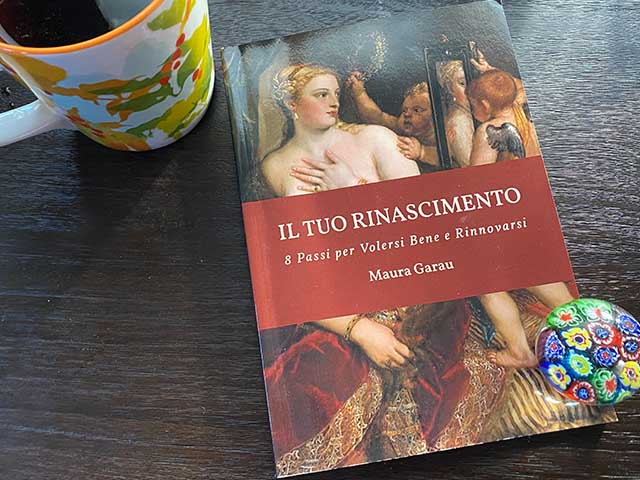
L’imperativo di Cesare: Comanda con Autorità!
Caesar’s Imperative: Master Commands with Authority!
Cesare parla! / Caesar speaks!
Ascoltate, studenti!
Students, lend me your ears!
“Saluti, amici, compatrioti e studenti, prestatemi orecchio; io, Giulio Cesare, imperatore di Roma, sono qui per parlarvi del tempo imperativo italiano!”
“Greetings, friends, countrymen, and students, lend me your ear; I, Julius Caesar, emperor of Rome, am here to tell you about the Italian Imperative tense!”
Perché l’imperativo è utile?
Why is the imperative tense useful?
“Beh, miei cari studenti, l’imperativo ci permette di comunicare in modo chiaro e conciso. Non c’è tempo per lunghe spiegazioni in una battaglia frenetica o in una casa piena di bambini. Con l’imperativo, si va dritti al punto!”
“Well, my dear students, the imperative lets us communicate clearly and concisely. There’s no time for lengthy explanations in a frantic battle or a house full of kids. With the imperative, you get straight to the point!”
“Come imperatore, trovo l’imperativo utile per dare comandi, suggerimenti e persino consigli amichevoli ai miei sudditi. Imparatelo e usatelo con coraggio!”
“As an emperor, I find the imperative useful for giving commands, suggestions, and even friendly advice. Learn it and use it boldly!”

Comanda come un imperatore!
Command Like an Emperor!
Padroneggiare i verbi all’imperativo è la tua chiave per comandare con sicurezza—proprio come Cesare! Quando radunava le sue truppe, gridava: “Prendete posizione! Preparate le armi! All’attacco!” Al suo cuoco ordinava: “Tu! Prepara un banchetto delizioso e non dimenticare la mia insalata preferita!” E ai suoi fedeli studenti di lingue incoraggiava: “Abbiate coraggio!”
Mastering imperative verbs is your ticket to commanding with confidence—just like Caesar! When rallying his troops, he’d shout, “Take your places! Prepare your weapons! Charge!” To his cooks, he’d decree, “Prepare a delicious feast and don’t forget my favorite salad!” And to his loyal language students, he’d encourage, “Have courage!

Come si forma l’imperativo informale?
How do you form the informal imperative?
L’imperativo si usa ogni giorno per dare ordini, istruzioni, permessi e suggerimenti.
The imperative is used daily for giving orders, instructions, permissions, and suggestions.
The informal imperative is used with these subject pronouns:
Tu (you-singular) Noi (we), Voi (you-plural
Non esiste una forma per “io” perché non diamo ordini a noi stessi!
There’s no “I” form because we don’t give orders to ourselves!
Steps to Form the Imperative: For regular -ARE verbs:
The tu form changes the final -i of the present tense to -a.
The noi and voi forms are the same as in the present indicative.
| Parlare (to speak) | Tu | Noi | Voi |
|---|
| Imperative Form | Parla | Parliamo | Parlate |
Tu parla! (Speak!)
Noi parliamo! (Let’s speak!)
Voi parlate! (You all speak!)
Steps to Form the Imperative: For regular -ERE and -IRE verbs:
The tu, noi, and voi forms are the same as the present indicative
| Scrivere (to write) | Tu | Noi | Voi |
|---|
| Imperative Form | Scrivi | Scriviamo | Scrivete |
Tu scrivi! (Write!)
Noi scriviamo! (Let’s write!)
Voi scrivete! (You all write!)
Steps to Form the Negative Imperative:
For tu, use non + the infinitive
For noi and voi, add non before the imperative form
Non mangiare troppo! (You don’t eat too much!)
Non parliamo di questo! (Let’s not talk about this!)
Non urlate! (Don’t shout!)
The “Noi” form of the Imperative is equivalent to “Let’s….
Andiamo! (Let’s go!)
Balliamo! (Let’s dance!)
Mangiamo! (Let’s eat!)

Forme irregolari dell’imperativo
Irregular Forms of the Imperative
Proprio quando pensi di aver padroneggiato i verbi regolari, arrivano i verbi irregolari a metterti alla prova. Questi verbi seguono un ritmo tutto loro, sfidando le regole di coniugazione standard. Ma niente paura! Anche se inizialmente possono sembrare difficili, i verbi irregolari sono tra i più usati nella conversazione quotidiana e impararli eleverà immediatamente il tuo italiano a un livello da imperatore!
Just when you think you’ve got the hang of regular verbs, along come the irregular verbs to challenge you. These verbs march to the beat of their own drum, defying standard conjugation rules. But fear not! While they might seem tricky at first, irregular verbs are some of the most commonly used in everyday conversation, and learning them will instantly elevate your Italian to emperor-level authority.
The tu form of -ARE verbs uses -a instead of -i in the imperative.
For negative commands, only the tu form requires the infinitive verb.
Irregular verbs like essere and avere require memorization.
| Verb | Tu Form | Noi Form | Voi Form |
|---|
| Essere | Sii | Siamo | Siate |
| Avere | Abbi | Abbiamo | Abbiate |
| Andare | Va’ | Andiamo | Andate |
| Fare | Fa’ | Facciamo | Fate |
| Dire | Di’ | Diciamo | Dite |
| Dare | Da’ | Diamo | Date |
| Stare | Sta’ | Stiamo | State |
Sii gentile! (Be kind!)
Fa’ attenzione! (Pay attention!)
Non essere timido! (Don’t be shy!)
L’uso dei pronomi con l’imperativo informale
Using Pronouns with the Informal Imperative
Quando un pronome diretto (mi, ti, lo, la, ci, vi, li, le) o un pronome indiretto (mi, ti, gli, le, ci, vi, gli, ne) viene aggiunto a un verbo coniugato all’imperativo, il pronome si unisce direttamente al verbo. Questo crea un modo fluido e naturale per esprimere i comandi.
When a direct pronoun (mi, ti, lo, la, ci, vi, li, le) or an indirect pronoun (mi, ti, gli, le, ci, vi, gli, ne) is added to a conjugated imperative verb, the pronoun attaches to the verb itself. This creates a seamless and natural way to express commands.
Tu seguiLO! (You follow him!)
Noi seguiamoLO! (Let’s follow him!)
Voi seguiteLO! (You all follow him!)
ParlarGLI! (Talk to him!)
ParliamoGLI! (Let’s talk to him!)
ParlateGLI! (You all talk to him!)
Esmeralda, non portarCI del pane, portaCI del formaggio!
(Esmeralda, don’t bring us bread, bring us some cheese!)
La lezione sui verbi imperativi non è affatto difficile; imparateLA per domani!
(Lessons on imperative verbs are not difficult at all; learn it for tomorrow!)
Silvia ha fame. PrepariamoLE un piatto di pasta!
(Silvia is hungry. Let’s prepare her a plate of pasta!)
Irregular Informal Imperative: Apostrophes & Doubling Letters
For irregular verbs in the imperative, when a pronoun is attached, apostrophes and letter doubling often occur for smoother pronunciation. Here are some common examples:
Fammi vedere! (Let me see!)
Dimmi che mi ami! (Tell me you love me!)
Dammi il libro! (Give me the book!)
Digli il codice! (Tell him the code!)

Quando usare l’imperativo formale
When to Use the Formal Imperative
L’imperativo formale trasmette eleganza, rispetto e cortesia. Immagina Cesare che saluta Cleopatra, regina d’Egitto, nel suo palazzo romano. Potrebbe dire:
The formal imperative conveys elegance, respect, and courtesy. Imagine Ceasar greeting Cleopatra, Queen of Egypt, in his Roman palace. He might say:
“Carissima Cleopatra! Prego, si accomodi!”
(“Dearest Cleopatra! Please, make yourself comfortable!”)
Come formare l’imperativo formale
How to Form the Formal Imperative
I comandi formali per Lei (il “tu” formale) si coniugano usando il congiuntivo presente. Questo vale sia per i comandi affermativi che per quelli negativi. Per i comandi negativi, basta aggiungere “non” prima del verbo.
Formal commands for Lei (the formal “you”) are conjugated using the present subjunctive tense. This applies to both affirmative and negative commands. For negative commands, simply add “non” before the verb.
Signora, non apra il piccolo sportello, apra quello grande!
(Madam, don’t open the small compartment; open the large one!)
Venga qui, Professore!
(Come here, Professor!)
Prendiate queste penne, Dottori!
(Take these pens, Doctors!)

Ora sei pronto a comandare come un vero italiano (o imperatore!)
Now you are ready to Command Like a True Italian (or Emperor!)
Ora che hai padroneggiato l’arte dell’imperativo, sei pronto a comandare con sicurezza, eleganza e stile—proprio come Cesare! Per iniziare, ecco alcune delle espressioni imperative più comuni che sentirai spesso nelle conversazioni italiane: Ma dai! (Dai, forza!), Scusami! (Scusami!)Va’, va’! (Avanti, vai!), Dai, dai, dai! (Forza, mettici tutto!)
Now that you’ve mastered the art of the imperative, you’re ready to command with confidence, elegance, and flair—just like Caesar!
Chissà? Con questi strumenti nel tuo arsenale, potresti persino impressionare i tuoi “sudditi” la prossima volta che fai un discorso o dai un comando. Quindi, vai e parla italiano come un vero imperatore—imperativo alla grande!
Who knows? With these tools in your arsenal, you might just impress your “subjects” the next time you give a speech or issue a command. So go forth and speak Italian like a true emperor—imperativo alla grande!










